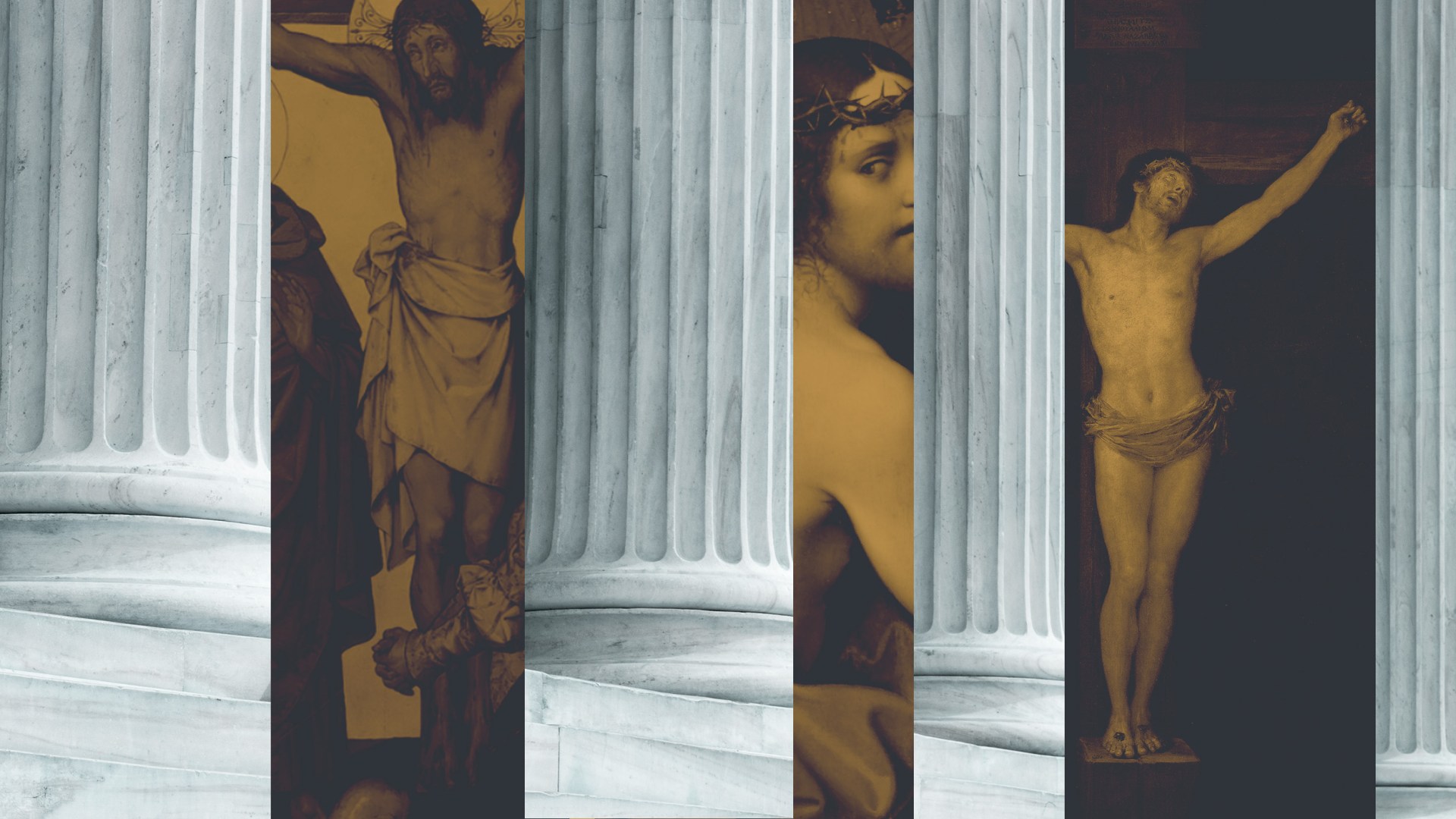The story of Easter, all Christians agree, is the story of our salvation. “By this gospel you are saved,” wrote Paul, “that Christ died for our sins according to the Scriptures, that he was buried, that he was raised on the third day” (1 Cor. 15:2–4). It was for “us and for our salvation,” says the Nicene Creed, that Jesus took on flesh, died, and rose as “Lord and Messiah” (Acts 2:36).
But how did our salvation take place, exactly? The theories of Christ’s atonement tell stories of Easter’s inner workings. And the three most popular models throughout church history—Christus Victor, satisfaction theory, and penal substitution—are also remarkably political. They were shaped by the governmental contexts in which they arose.
I’ve come to love studying atonement theories, because it has clarified and enriched my understanding of God’s character and because learning about those political contexts has shed light on where our society is moving now.
My first exposure to Christus Victor was The Lion, the Witch, and the Wardrobe, but the theory is dominant among early theologians like Origen, Athanasius, and Gregory of Nyssa. They speak of Jesus redeeming us from oppressive powers—sin, death, the Devil—to whom we’d bound ourselves by our own treachery. Christ “disarmed” those powers and triumphed over them on the cross (Col. 2:13–15). God became incarnate, as Irenaeus wrote, that “He might kill sin, deprive death of its power, and vivify man.”
That made sense in the ancient Greco-Roman world, where conquest was familiar and a redemptor could buy the freedom of someone enslaved or taken prisoner of war. But in the 11th century, as Normans brought the feudal system to England, Anselm, bishop of Canterbury, told a new atonement story.
Explicitly drawing on rules of honor and hierarchy of his day, Anselm’s satisfaction theory swaps the roles: God the Father, rather than Satan, demands humanity’s debt be paid before reconciliation can occur. Here, humanity’s sin violates divine honor and requires satisfaction we cannot make, so God becomes human to satisfy our obligation on our behalf.
That change of the Father’s role persisted when penal substitution arose 500 years later alongside the modern legal system. Figures like John Calvin, who studied law before becoming a Reformer, replaced the image of a serf trying to satisfy his lord with a courtroom where God as righteous judge condemns sinners who violate his law. But “Christ interposed, took the punishment upon himself,” and “propitiated God the Father,” Calvin wrote in his Institutes, relying on passages like Isaiah 53:5-6 and Romans 3:25, so that God is no longer “in a manner hostile to us, [with] his arm raised for our destruction.”
I understand why penal substitution became “a distinguishing mark” of evangelicalism, in the phrase of the late J. I. Packer. Some of that adoption is theological—compelling cases for the theory abound—but some of it is cultural. I can easily explain penal substitution because we know how a courtroom works. Penal substitution is immediately intelligible in the world of the Reformation, Renaissance, Enlightenment, and Industrial Revolution.
In many ways, we still live in that world, but in many ways we don’t. I think resurgent interest in Christus Victor, the view that is most convincing to me, is a little-noticed bellwether of this change. A God who crushes evil we’re helpless to defeat and who frees us from striving is good news in a culture preoccupied with institutional corruption.
The new or renewed cultural resonance of an atonement theory doesn’t prove its truth, of course. Theories can attract fans for perverse reasons. Some Christus Victor proponents, for instance, are too eager to dispense with notions of personal sin.
But the cultural response to a theory can tell us something about the longings and needs of our time. It offers insight into our political dramas and reminds us, too, of the different stories that explain Christ’s work on the cross.










